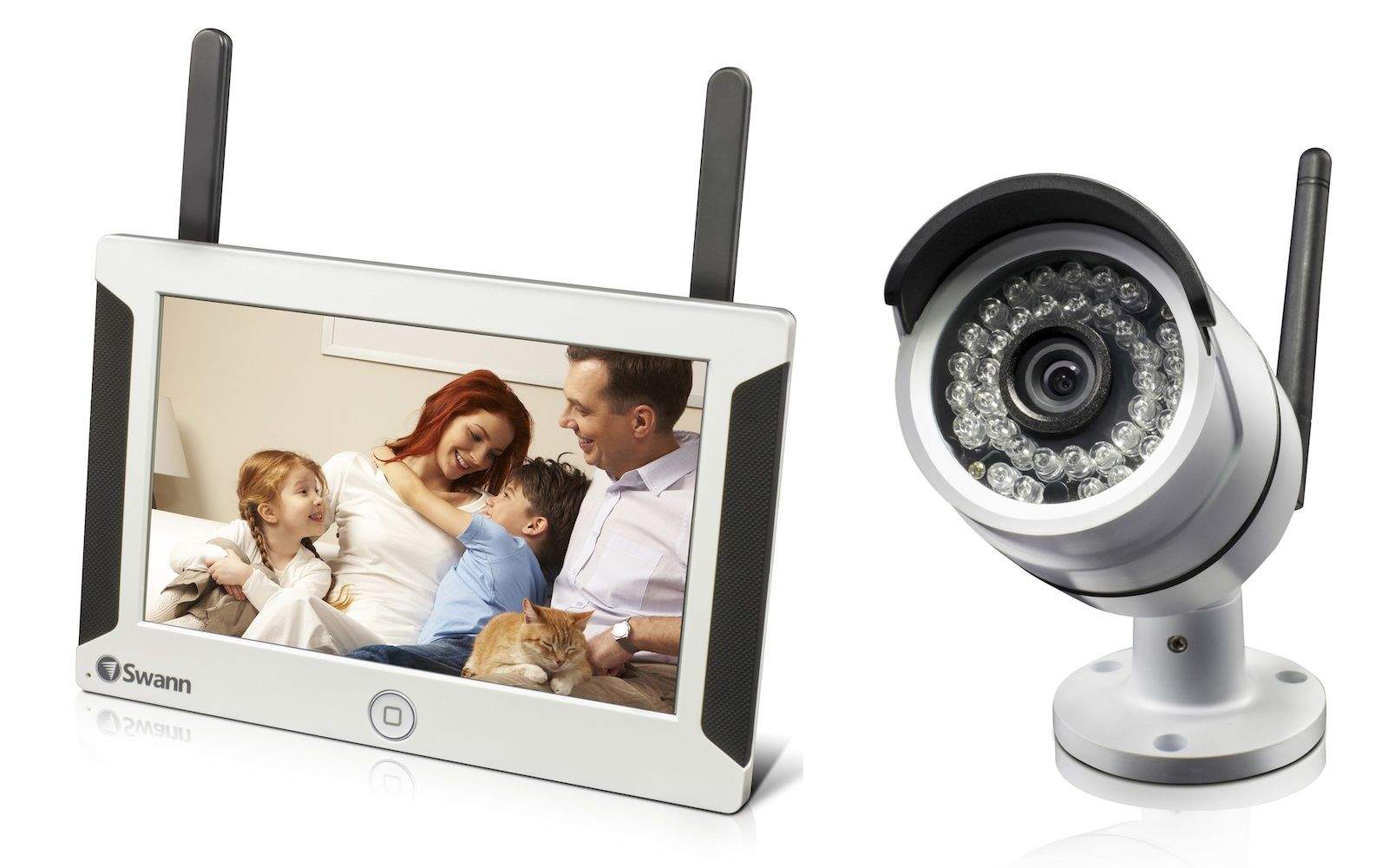The security of your home is more simple than ever before with security cameras. With wired or wireless cameras, you can watch your home when you are away or working. While you’re at home the system functions as a second set of eyes on your home.
Wireless cameras take more setup time and effort, yet they provide greater security. Wireless security cameras are affordable and can be set up in a short time. However, network malfunction, as well as on-site tampering, can be negatives.
Must Read: Best Home Security Camera
What Is a Wired Security Camera System?
The video may remain local to the hub to be viewed later or sent outside the home to an internet. The network lets users watch the video in real time or view it later.
Wireless security cameras get their electrical power through the use of a hardwired cable. The power could be directly drawn from the power outlet. The power could be transmitted via the wire that connects with the hub centrally, that is, the PoE (Power over Ethernet) cable.
The hub centrally located within or near the home. The hub may be connected to a digital video recorder (DVR) that is connected to the cameras using coaxial cables.
Pros
- Audio and video signals that are clear
- Signals that are reliable, shouldn’t be able to
- Continuous power supply to cameras
- Home system hacking via wireless is cannot be done.
Cons
- System is not portable. at home even in the event of a relocate
- The wiring’s length must be concealed
- Wiring needs to be routed across multiple locations.
- The number of cameras is limited by the number of jacks in the DVR
Advantages of Wired Security Cameras
With the proliferation of cheap security cameras that are wireless It’s easy to see the wired camera system as being a thing from the past. But this isn’t true. Wireless camera systems are an excellent choice for security in the home and provide advantages over wireless systems.
The primary benefit of cameras wired is that the feed from the hub remains secure. The signal won’t break or weaken. So long as the wire is present and the hub is in place, it should receive the feed in a continuous manner and with maximum quality.
Wireless security cameras can be used to install multiple cameras in several rooms in the house as well as to the outside since the signal won’t be hindered by walls.
Disadvantages of Wired Security Cameras
Installation is the biggest drawback for wired security cameras. Between four and sixteen cameras might require to be installed. In order to give you a an expansive view of your property and home it’s not feasible to set up a cluster of cameras in order to cut down on wiring.
Security camera wires are extremely long, a few hundred feet, total. Since very few homeowners would like to secure exposed wiring to the walls or baseboards the wires have to be run through ceilings, walls and crawl space.
What Is a Wireless Security Camera System?
wireless (and free of wire) security cameras send footage from cameras positioned throughout the home to the Wi-Fi of your home. The transmission is entirely wireless.
After the Wi-Fi has received the signal, it’s transmitted to a cloud server where footage is viewed in real time or stored to be viewed later. Certain cameras come with onboard micro SD cards, which can hold the footage in a limited capacity.
The standard features you can expect from the wireless or wireless security cameras include night vision 2-way audio, two-way, 2K HD video and voice control using any digital voice assistant you choose (such such as Amazon Alexa or Google Assistant).
The difference between wire-free and wireless devices is vital. The video signals from wireless cameras are wirelessly transmitted towards the central hub however, the cameras get power via wires.
Cameras that are wire-free run on batteries. Due to their low power, they are able to conserve energy and only record when they sense an indication. However, wireless cameras are powered by the home and can be capable of continuously recording. They can also be programmed for recording only when there is motion recognized.
Advantages of Wireless Security Cameras
Wireless security cameras require less effort on homes than wiring cameras, which means they are easier to set up and speedier. There is no drilling into ceilings or walls is required.
Wireless cameras are also far more adaptable than wired ones because they don’t have to be shackled by wires. They can be easily relocated. The entire system could be relocated to a different place, making it ideal for tenants.
Since there is no wire between the cameras and hub, it also means there isn’t a wire that thieves or intruders could cut.
If there’s an unobstructed line of sight, such as an outbuilding or the main residence–wireless outdoor security cameras can be able to cover about 500 to 700 feet.
Disadvantages of Wireless Security Cameras
In the house, wireless systems typically offer a range of 150 feet , or even less. The wireless signal travels through walls that are made of wood studs and drywall. However, building materials with greater density like concrete blocks and bricks may block the signal.
Wireless security cameras make vulnerable to digital surveillance. To guard yourself, FTC suggests to ensure that any camera you purchase secure its data, and your home wireless device be compatible with WPA2 or other wireless security protocols.
Power is a concern for wireless security cameras as well. Certain wireless cameras run on batteries which means that the battery in every camera has to be kept fresh. Wireless cameras that plug into wall outlets may be a problem since each camera has to be placed near to an outlet.
Pros
- Clean installation
- System is flexibleand mobile.
- It is easy to increase the size and add cameras
- The wire is not cut by intruders because there isn’t any
Cons
- Signal range limited
- Walls, floors , and other elements of a building can block signals
- Potential interference from other systems dependent upon Wi-Fi is possible
- Prone to digital snooping
- Batteries require a change to wire-free systems
Wired and wireless. wireless cameras: which one to buy?
Technology continues to advance wired and wireless home security cameras are now better than ever before. The question is the best system that is compatible with your home and you.
Wired Security Cameras
A wired camera may be the best option for you if you’re comfortable working on the front end to reap the long-term benefits of performance.
You own the house or you’re planning to live there for a duration. You’re skilled using tools and aren’t averse to digging into walls. If you’re not a DIYer then you can hire an expert to set up the wired system.
Wireless Security Cameras
Wireless security cameras or wireless ones could be the best choice If you’re looking to have the system running in a short time and you need flexibility.
Changes to your house could be an issue, whether as a homeowner or a renter owner. You might not be keen on doing a lot of work yourself.
If you are renting it, you’ll need the wireless or wire-free option since it will be able to move along with you from your current house.
Read More:





